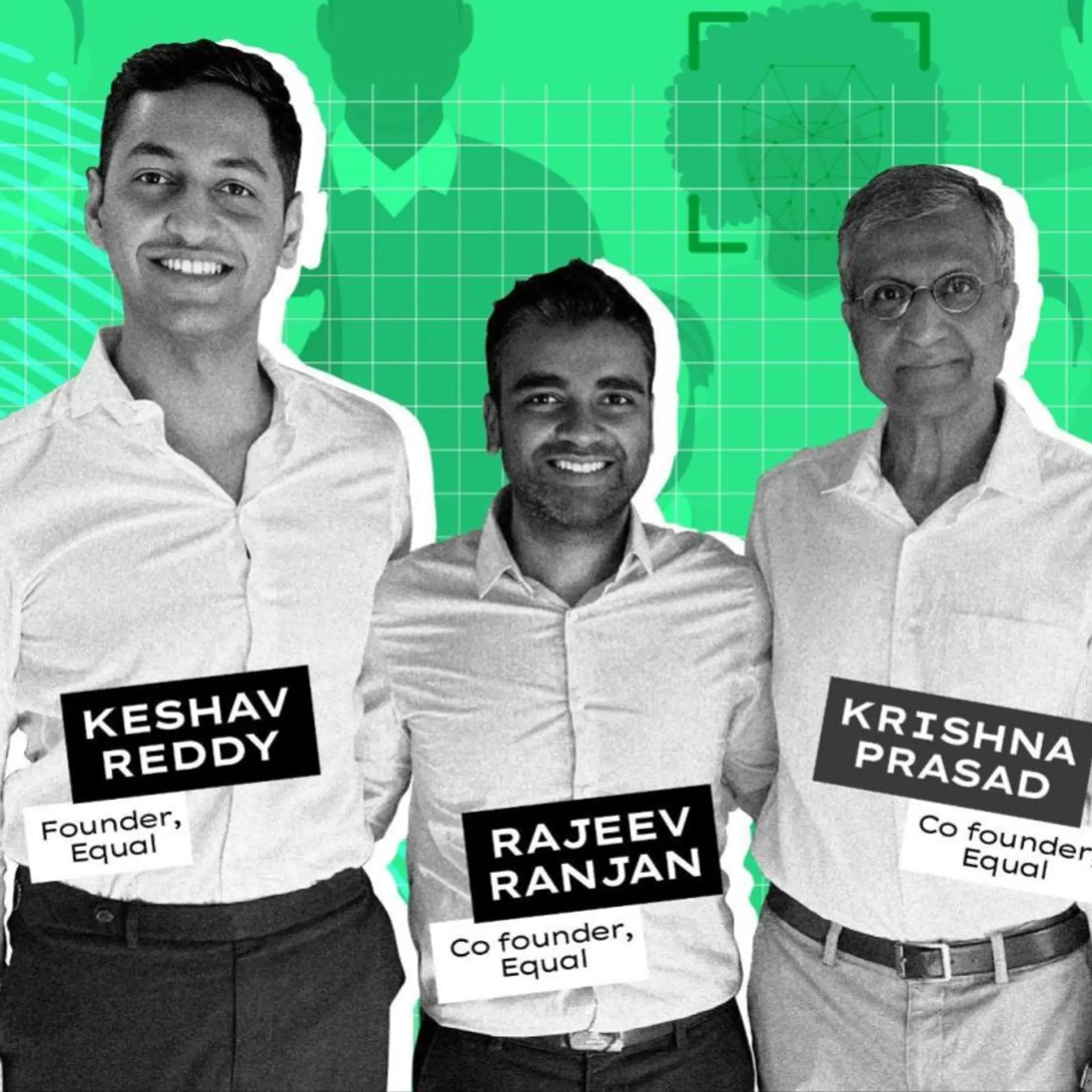Startup Bharat: This Ahmedabad-based startup is bringing design thinking to kids with creative games
Roundumbrella Co is an ed-design startup that is on a mission to bring design thinking to K12 education with toys and physical games.
Parenting gurus have for long been advocating the importance of raising children as out of box thinkers. Entrepreneur Shivani Chakrachhattri’s design thinking startup Roundumbrella Co is now devising games that help children think like there is no box!
Started in 2018 by Shivani and Mohit Saini, Ahmedabad-based Roundumbrella Co is an ed-design startup that is on a mission to bring design thinking to K12 education with toys and physical games.
It has developed ‘Bulby for Kids’, a light and shadow game that enhances creative confidence based on the fundamentals of making novel combinations. The founders explain it is both an indoor and outdoor game where kids can learn to combine two different objects, concepts, and scenarios to come up with something absolutely novel.
“We answer the ‘how’ with our games,” says Shivani. Explaining the concept, she says there are three pillars to education-- child, teacher, and learning-- and most of the innovation and technology intervention in the last decade has been centred on improving the 'learning' part by standardising the role of the teacher via 'standard video lectures', 'scalable online content', creating access, etc.

“The next challenge in education, which doesn’t get solved by standardising the role of a teacher, is to prepare children to deal with a rapidly changing world and highly uncertain future,” says Shivani. She also claims that the games developed by Roundumbrella brings empathy, resilience, and creativity in kids up to the age of 10 years, that become the pillars for creative confidence in the future.
Shivani emphasises on building an education system that inculcates a problem-solving mindset in kids, so as to help them navigate ambiguity with ease. According to her, a design thinking pedagogy builds such a mindset in kids.
How it began
Shivani is an engineering graduate, and a Product Designer from the National Institute of Design (NID), Ahmedabad. She pursued a career in the corporate world and was with Deloitte Digital as a Designer before starting up on her own. “I always found joy in making simple physical products,” says Shivani.
She recalls her struggle to understand the local language on a trip to Germany for an exchange programme. She took the help of picture cards in order to make herself understood. The stint planted a seed of thought in Shivani, who wanted to innovate as an engineer, but also wanted to solve human centric problems with her interest in design.
Once back in India in 2018, Shivani quit her job with Deloitte Digital to pursue her passion of creating something borderless and language-less for kids. She started visiting schools to interact with different kinds of students, and made non-digital products for them. Working as an independent designer, she was trying to make a children's game. “The product designer inside me found its purpose in designing radical experiences with simple tangible products,” says Shivani.
In just a few months, Shivani realised how toys help increase creative confidence in the early years of learning. This spurred her to focus on the education sector, and Roundumbrella was born. She roped in Mohit Saini, whom she had met during graduation at NIT, Surat. Co-founder Mohit Saini is an IIM Ahmedabad alumnus.
Thirty-four-year-old Mohit, whose mother is a teacher at Kendriya Vidyalaya, says “It feels like I inherited her patience and love for teaching.” In his words, he enjoys uncomplicating the tensile concepts of learning into simple experiences and building social systems around the games that the company builds.
Roundumbrella’s flagship game 'Bulby for Kids' took three years of research and development. With a team of seven, the startup is now ready to ship its first batch of 100 boxes across the globe.
“We are building a range of toys based on the different pillars of design thinking, and we hope this will help the kids build on their creative confidence,” says Shivani.
Market and Competition
According to UNICEF, 67,385 babies are born in the country every day, that is around 25 million babies every year. With that, Roundumbrealla has its eye on a huge market.

Speaking about competition, Shivani says most activities around design thinking are either based on flashcards, are online, or are one-time activities like workshops. “We build simple physical games which can be played at home, are fun, and yet are tools for creativity,” she adds.
Funding and Revenue
The company started with a seed capital of Rs 5 lakh. “We have completed a crowdfunding campaign and raised $3000 from 51 backers from the USA, UK, Canada & India,” she says.
The company is in the pre-revenue stage. However, it has a sales pipeline of 100 boxes. It is building its business model on both direct-to-consumer (D2C) and business to business models (B2B), where it will collaborate with educational institutes. Its ‘Bulby for Kids’ game is priced at $55 outside India, and just short of Rs 2000 in India.
Future Plans
The company is now looking to complete a range of four games as its initial design thinking package offering for facilitators and schools.
“In the next 18 months, we plan to reach out to more than one lakh kids in the form of workshops and toys. The whole intention here is to base our toys around natural elements so we handle diversity, equity, and inclusion beautifully,” concludes Shivani.
Edited by Anju Narayanan



![[The Turning Point] Why these mothers quit their corporate careers to make toxin-free crayons for kids](https://images.yourstory.com/cs/2/70651a302d6d11e9aa979329348d4c3e/NehaandKaren2-1617275791706.jpg?fm=png&auto=format&h=100&w=100&crop=entropy&fit=crop)





